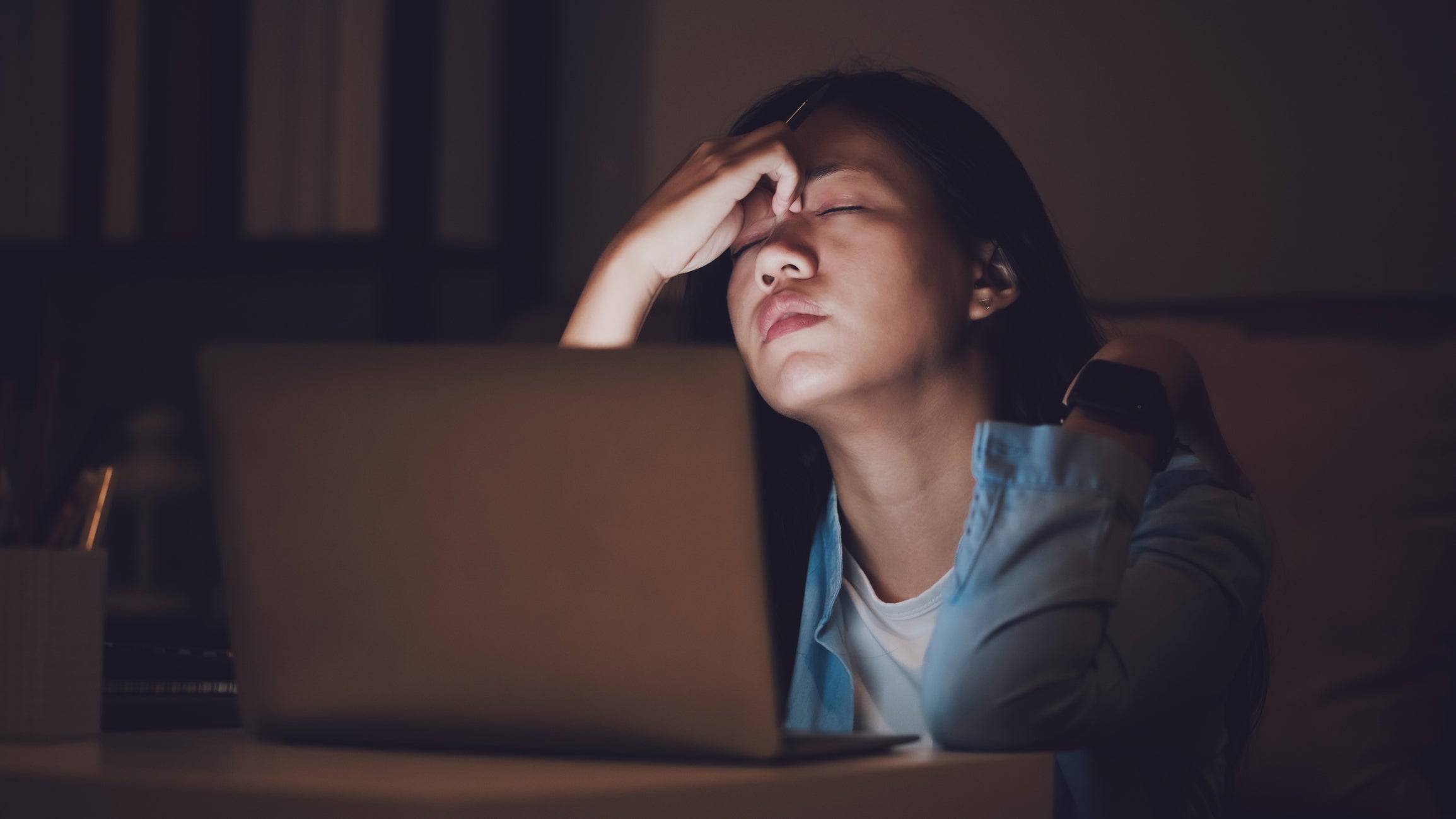How to beat lockdown burnout
Wellbeing experts offer practical advice to reduce your stress levels.

Your support helps us to tell the story
From reproductive rights to climate change to Big Tech, The Independent is on the ground when the story is developing. Whether it's investigating the financials of Elon Musk's pro-Trump PAC or producing our latest documentary, 'The A Word', which shines a light on the American women fighting for reproductive rights, we know how important it is to parse out the facts from the messaging.
At such a critical moment in US history, we need reporters on the ground. Your donation allows us to keep sending journalists to speak to both sides of the story.
The Independent is trusted by Americans across the entire political spectrum. And unlike many other quality news outlets, we choose not to lock Americans out of our reporting and analysis with paywalls. We believe quality journalism should be available to everyone, paid for by those who can afford it.
Your support makes all the difference.As we approach the one-year anniversary of when the pandemic began to really impact our lives, hope may be on the horizon in the form of vaccines and an end to lockdown restrictions, but it’s important to recognise that daily life can still be difficult.
If you’re feeling frazzled and struggling to sleep, depressed and exhausted, or all of the above, you may be experiencing burnout.
What is burnout?
“Burnout is a state of psychological (mental and emotional) exhaustion brought on by a prolonged stressful situation,” says Dr Audrey Tang, author of The Leader’s Guide to Resilience.
It’s safe to say that the global pandemic has created a ‘prolonged stressful situation’ for most – if not all – of us, which is why we’re feeling the strain psychologically.
“Burnout affects all aspects of our life including our work, relationships, physical and mental health, and more often than not, all of them,” says neuroscientist, business psychologist and change specialist Dr Lynda Shaw.
“Signs of burnout may include fatigue, feeling overwhelmed, irritability, sleepless nights even when we feel exhausted, increased anxiety or depression, and raised blood pressure.”
But you don’t have to just wait until the end of lockdown and hope that the symptoms go away. Here, our experts share practical steps you can take to tackle it now…
Prioritise sleep
One of the most important things you can do to boost your wellbeing is try to get the recommended seven to nine hours of sleep per night.
“Prioritise your sleep by limiting caffeine after midday, avoid screen time before bedtime and having a good bedtime routine,” says Shaw. “This may help to improve your memory and concentration levels, and overall physical and mental health.”
Head outside
“Simply getting out (while dressed suitably for the weather!) can help you get more vitamin D, which can increase feelings of happiness and counter things such as Seasonal Affective Disorder,” says Dr Tang.
She recommends taking a moment to be ‘informally mindful’ by focusing on what’s around you: “Listen to the birds, feel the warmth of the sun and breathe deeply.”
Exercise
“Build regular gentle exercise into your day, especially outdoors and, if you can, in the morning, to help maintain your natural circadian rhythms,” says Shaw. Whether it’s yoga, running or a brisk walk, this can – in turn – help you get more sleep. “It really helps with recovery and recuperation,” she adds.
Ask for help
Suffering in silence won’t help when it comes to burnout, especially if work is a source of stress.
Shaw says: “Tell your work if you’re struggling with the workload, there is no shame in asking for help. Ask for a meeting with your boss and set out exactly what it is you need support with, to try and take some pressure off.”
Limit video meetings
Whether for work or fun, too many video calls can be draining.
“Ask yourself if it needs to be done in an online meeting room,” says Dr Tang. “Will a phone call do? Will a WhatsApp message be short and sweet enough?
“Online meetings take energy. Be mindful you aren’t causing ‘Zoom fatigue’ in your teams, so that when it comes to their personal life, they can’t face going online.”
Focus on one thing at a time
Your productivity can take a hit when you’re feeling burned out, so try to organise your working hours to optimise concentration.
“Plan your most productive time of day, so you do the most important or tricky tasks when you are at your best,” says Shaw.
“Research shows that processing more than one task at a time means our concentration suffers. It’s very stressful, and thinking and memory are compromised, so avoid distractions when you need to concentrate.”
Work out your ‘yin and yang’ of pleasure
“This is one of my favourite tips and takes three parts,” says Dr Tang. “First, recognise when you are enjoying something. Second, decide if that activity relaxes (yin) or energises (yang) you. Third, decide what you need – and pick from the list of things you know you enjoy.”
For example, a quick HIIT workout might give you a boost, while a stroll around the park might calm you down.
“The secret to this, is that if we’re feeling stressed, then something that relaxes us is going to be far more effective than something that energises us, but if we are feeling down or apathetic, then an energiser may be more useful than a relaxant.”